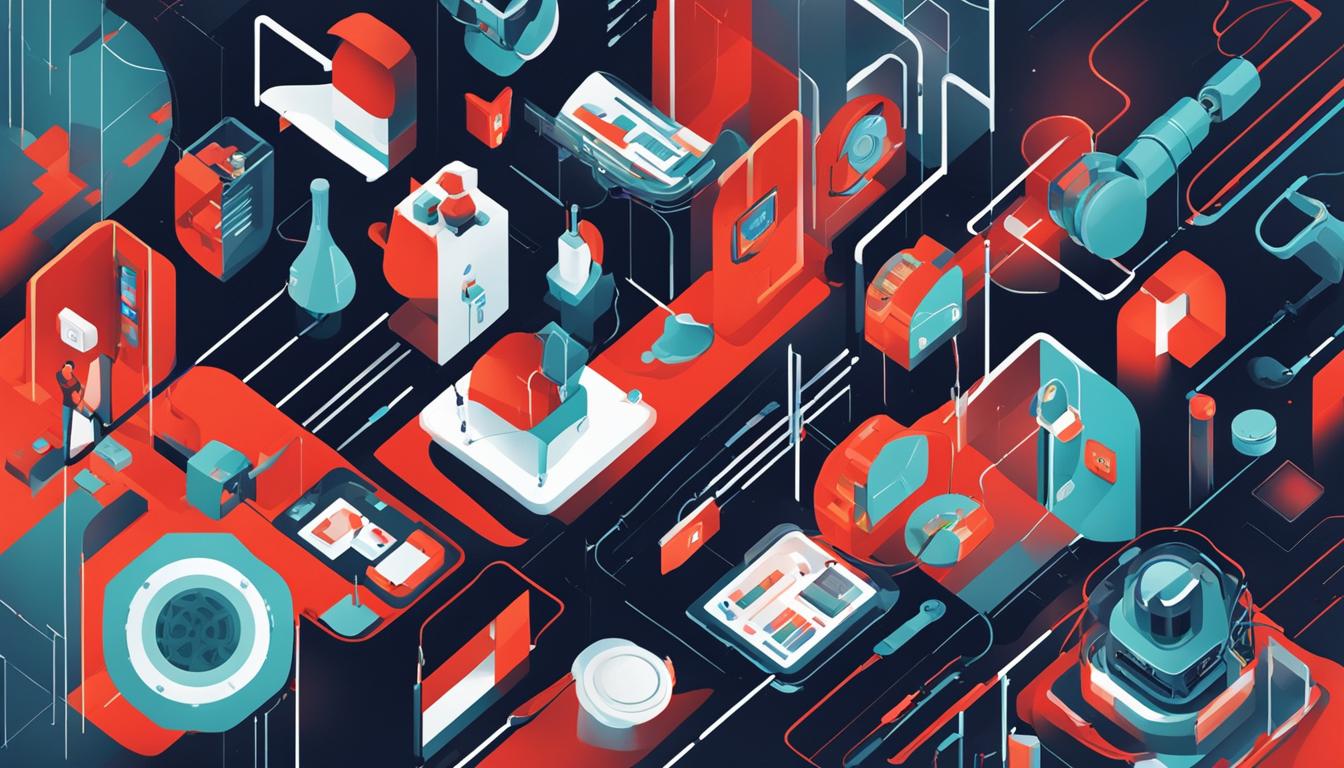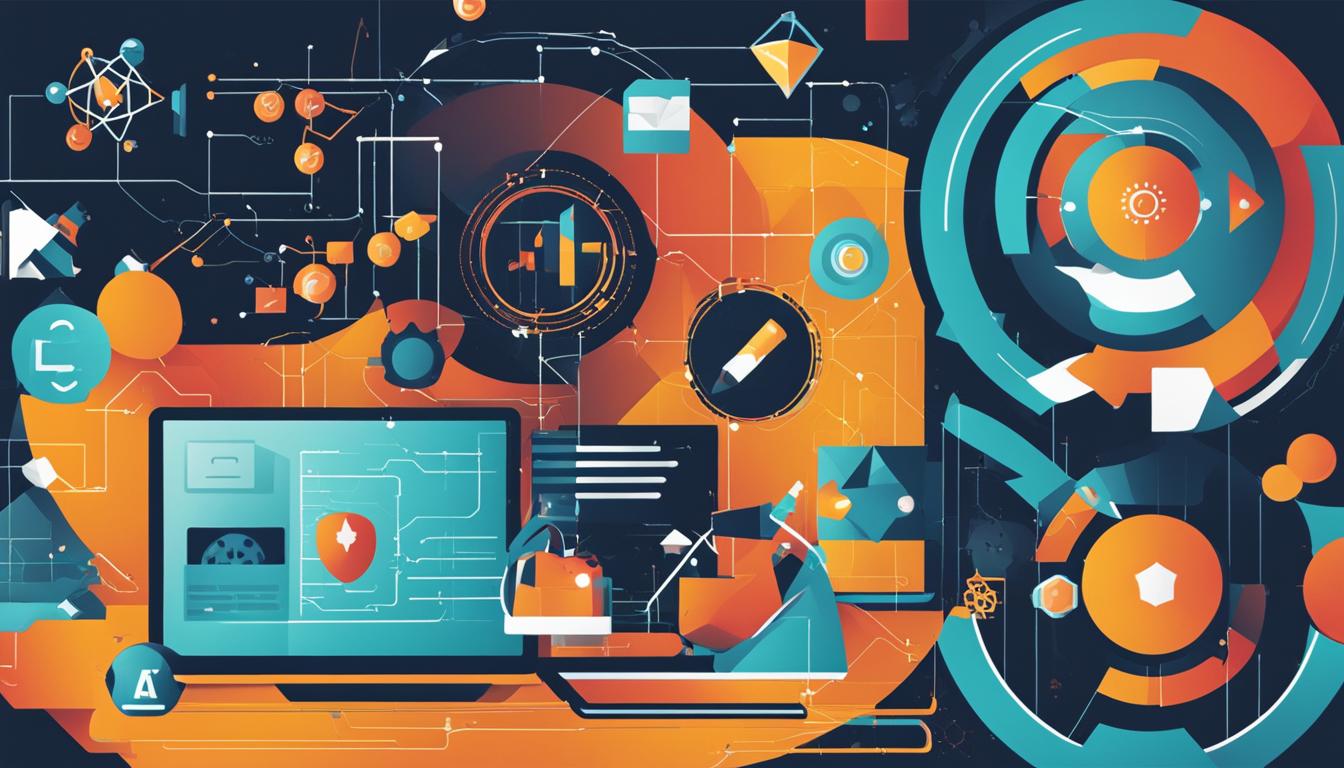The complexity and rise of data in healthcare means that artificial intelligence (AI) will increasingly be applied within the field. AI is already being used in various applications in healthcare, including diagnosis and treatment recommendations, patient engagement and adherence, and administrative activities. Although there are instances where AI can perform healthcare tasks as well or better than humans, there are implementation factors that will prevent large-scale automation of healthcare professional jobs for a considerable period. Ethical issues in the application of AI to healthcare are also discussed.
Key Takeaways:
- AI, short for artificial intelligence, is increasingly being applied in healthcare settings.
- AI is used for various tasks in healthcare, including diagnosis, treatment recommendations, and administrative activities.
- While AI has the potential to perform healthcare tasks well, large-scale automation of healthcare professional jobs is still limited by implementation factors.
- Ethical considerations are important when applying AI to healthcare.
- Implementation of AI in healthcare is an ongoing area of research and development.
Types of AI Technologies in Healthcare
AI in healthcare encompasses a range of technologies that are revolutionizing the industry. One of the most prevalent forms of AI used in healthcare is machine learning. This technology involves training models with data to learn and make predictions. Neural networks and deep learning are commonly used in machine learning algorithms, enabling computers to analyze vast amounts of healthcare data.
Natural language processing (NLP) is another AI technology that plays a significant role in healthcare. NLP enables computers to interpret and understand human language, which is valuable for tasks like clinical documentation analysis and patient care. By analyzing text, NLP algorithms can extract meaningful information from medical records and improve diagnosis accuracy.
Rule-based expert systems, although less prevalent today, have had a significant impact on healthcare in the past. These systems involve the creation of rules in specific knowledge domains and were widely used for clinical decision support. While they are not as commonly used now due to advancements in other AI technologies, they remain a part of the AI landscape in healthcare.
AI technologies are also applied in specific healthcare applications, such as diagnosis and treatment. Machine learning algorithms can analyze medical images to detect diseases at an early stage, improving patient outcomes. Additionally, AI has administrative applications in healthcare, streamlining tasks like data entry, claims processing, and appointment scheduling. These applications enhance efficiency and reduce the burden on healthcare professionals.
| AI Technology | Application |
|---|---|
| Machine Learning | Diagnosis and treatment, medical image analysis |
| Natural Language Processing | Clinical documentation analysis, patient care |
| Rule-based Expert Systems | Clinical decision support |
| Administrative Applications | Data entry, claims processing, appointment scheduling |
These AI technologies are continually advancing, paving the way for even more innovative applications in healthcare. As technology evolves and new algorithms are developed, the potential for AI to improve patient care, enhance research capabilities, and optimize administrative tasks continues to grow.

Applications of AI in Healthcare
In the rapidly evolving field of healthcare, artificial intelligence (AI) is making significant advancements. AI technologies are being applied in various ways to improve patient care and streamline administrative processes. Let’s explore some of the key applications of AI in healthcare.
Machine Learning in Healthcare
One of the most prominent applications of AI in healthcare is machine learning. Machine learning algorithms can analyze large volumes of clinical data and identify patterns and insights that may not be apparent to human healthcare professionals. This capability is particularly valuable in diagnosis and treatment applications, where machine learning models can assist in identifying early signs of diseases, predicting patient outcomes, and recommending personalized treatment plans.
Natural Language Processing in Healthcare
Natural language processing (NLP) is another important AI technology used in healthcare. NLP enables computers to understand and interpret human language, which is crucial for tasks like analyzing clinical documentation and extracting relevant information. With NLP, healthcare providers can improve diagnosis accuracy, streamline clinical processes, and enhance patient care.
Rule-based Expert Systems in Healthcare
Although less prevalent today, rule-based expert systems have historically played a significant role in healthcare. These systems involve the creation of specific rules in knowledge domains and can provide clinical decision support to healthcare professionals. By leveraging these rule-based systems, healthcare providers can access expert-level guidance and recommendations when making complex medical decisions.
Diagnosis and Treatment Applications of AI
In addition to machine learning and NLP, AI is also utilized in diagnosis and treatment applications. For example, AI algorithms can analyze medical images such as X-rays, MRIs, and CT scans to assist radiologists in detecting and diagnosing diseases. By harnessing the power of AI, healthcare professionals can enhance their diagnostic capabilities and improve patient outcomes.
Administrative Applications of AI
AI is not limited to clinical applications but also plays a vital role in streamlining administrative tasks in healthcare. Administrative applications of AI include automating data entry, claims processing, and appointment scheduling. By automating these time-consuming and repetitive tasks, healthcare organizations can improve efficiency, reduce errors, and allocate more resources to direct patient care.
| Application | Key Benefits |
|---|---|
| Machine Learning | Improved diagnosis accuracy, personalized treatment plans |
| Natural Language Processing | Enhanced clinical documentation analysis, streamlined processes |
| Rule-based Expert Systems | Clinical decision support, expert-level guidance |
| Diagnosis and Treatment Applications | Enhanced diagnostic capabilities, improved patient outcomes |
| Administrative Applications | Automated tasks, improved efficiency |
Conclusion
AI in healthcare has revolutionized the field, bringing significant advancements in diagnosis, treatment, and patient care. With the ability to analyze vast amounts of data quickly, AI technologies like machine learning and natural language processing have improved accuracy and efficiency in healthcare processes.
From diagnosing diseases to developing personalized treatment options, AI has reshaped healthcare by providing more accurate diagnoses and enabling more efficient and personalized treatments. The future of AI in healthcare looks promising, with further advancements in technology and increased collaboration.
However, implementation barriers and ethical considerations must be addressed to fully harness the potential of AI in healthcare. Despite these challenges, the healthcare industry can benefit from AI by improving patient care while reducing costs.
As AI continues to evolve, it is clear that it will play a crucial role in the future of healthcare. With ongoing research and development, we can expect AI to drive further innovation and transform the way we approach healthcare, resulting in improved outcomes and better patient experiences.
FAQ
What is the difference between Artificial Intelligence (AI) and AI in Healthcare?
Artificial Intelligence refers to the broader concept of machines performing tasks that would typically require human intelligence. AI in Healthcare specifically focuses on the application of AI technologies within the healthcare industry, such as machine learning and natural language processing, to improve patient care and outcomes.
What are the types of AI technologies used in healthcare?
The types of AI technologies used in healthcare include machine learning, natural language processing, rule-based expert systems, and diagnosis and treatment applications. Machine learning algorithms analyze large amounts of clinical data, natural language processing interprets human language, rule-based expert systems provide clinical decision support, and diagnosis and treatment applications use AI to analyze medical images and predict outcomes based on patient data.
What impact does AI have on healthcare?
AI has a significant impact on healthcare by changing the landscape of medical science, improving healthcare research, patient diagnosis, and drug discovery. AI assists in analyzing clinical documentation, identifying disease markers and trends, and developing personalized treatment options. Additionally, AI assistants in healthcare provide support to physicians in answering clinical questions and transcribing notes.
What are the applications of AI in healthcare?
AI is applied in various ways in healthcare, such as machine learning for processing clinical documentation, natural language processing for interpreting human language, rule-based expert systems for clinical decision support, and diagnosis and treatment applications for analyzing medical images and predicting outcomes. AI also has administrative applications in tasks like data entry and claims processing.
What is the future of AI in healthcare?
The future of AI in healthcare looks promising, with further advancements in AI technologies and increased collaboration. AI has the potential to improve patient care and outcomes while reducing costs. However, there are still implementation barriers and ethical considerations that need to be addressed to fully harness the benefits of AI in healthcare.
 Skip to main content
Skip to main content


